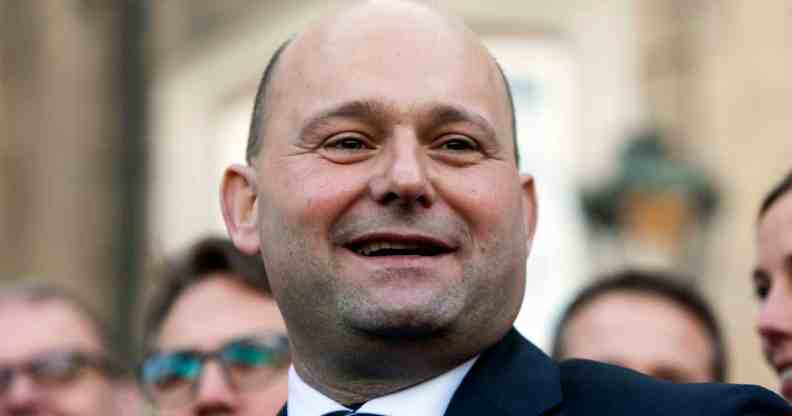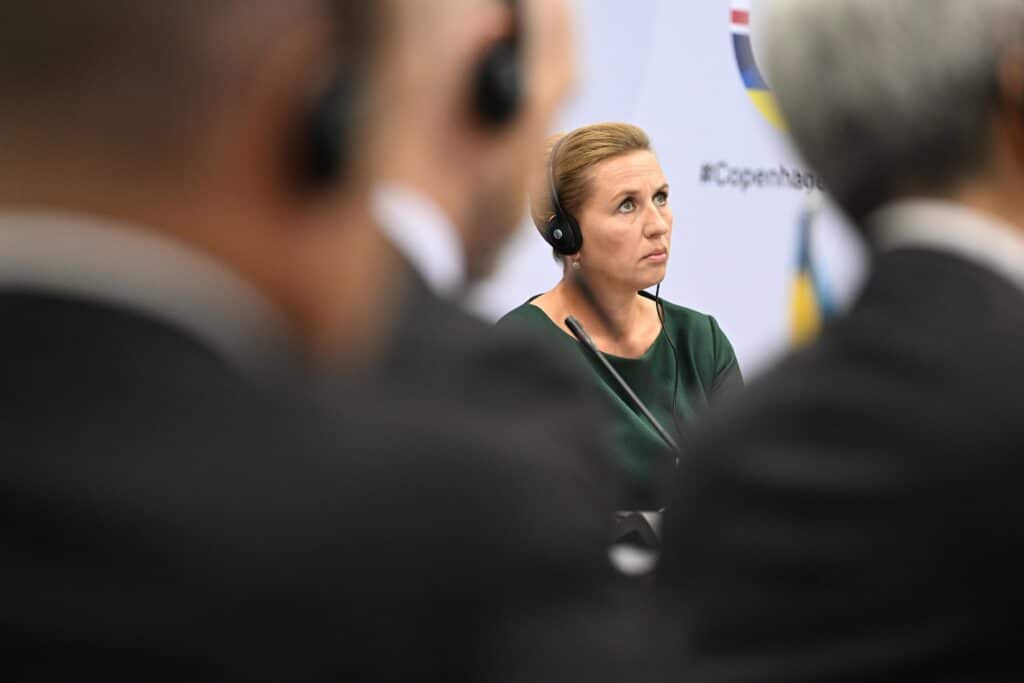Denmark could have its first LGBTQ+ prime minister as gay conservative throws hat into ring

Conservative People’s Party leader Soren Pape Poulsen. (Ole Jensen – Corbis/Corbis via Getty Images)
Denmark could get its first openly gay prime minister, after Conservative People’s Party leader Søren Pape Poulsen threw his hat in the ring.
Poulsen announced his run on Monday (15 August) in a Facebook post, ahead of an election for the Folketing, Denmark’s parliament, in June 2023.
The former justice minister and once-mayor of Viborg came out as gay in 2014, and said at the time he was “puzzled” why people felt like they had a right to know about his private life.
In his campaign announcement, he wrote: “Denmark is a fantastic country. But there is still a lot we must be able to do better. I’m going to the polls on that. I will do that as a candidate for prime minister.”
In an accompanying video, Poulsen said he will offer a more pragmatic option to voters with a campaign focused on keeping Danish society, the economy and businesses “safe”.
“We must take care of Denmark, our values and identity,” he added. “That’s why I’m running as a candidate for prime minister.”
Poulsen said he would manage Denmark’s economy more “responsibly”. This would include trimming energy and employment taxes as well as the country’s top tax on especially high-earners, which less than nine per cent of Danes pay.
Though taxes fund public programmes in Denmark, like extensive welfare benefits, state pensions and funding public services, Poulsen promised to keep services up to scratch by spending more “smartly”.

Danish prime minister Mette Frederiksen. (PHILIP DAVALI/Ritzau Scanpix/AFP via Getty Images)
This would include injecting money into welfare, hospitals and care for the elderly.
He said: “It’s being financially responsible. That’s ambitious. It’s for you and for Denmark.”
Poulsen joins what is, by Danish standards, a crowded field of candidates – three.
Threatening to split the right-wing vote, the leader of the opposition party Venstre, Jakob Ellemann-Jensen, is also running.
Both are vying to unseat the incumbent premier, Mette Frederiksen of the Social Democrats.
Poulsen came out as gay shortly after his appointment as Conservative People’s Party leader in 2014.
“It’s not a secret that I’m homosexual, but it truly amazes me that it could be so interesting in 2014 and I am puzzled over why people think they have the right to know,” Poulsen told Danmarks Radio.
“I have found that there is great interest in my personal life and I can’t give an interview without being asked a whole lot of questions about my personal relationships.”
It was no surprise Poulsen thought of his sexuality as no big deal, given Denmark has long been a trailblazer in LGBTQ+ rights. The nation legalised same-sex unions as early as 1983 and has since brought in marriage equality, robust discrimination protections and a relaxed gender recognition process.
But it’s not just in policy-making. Polls have shown acceptance for LGBTQ+ people is commonplace, with more than one in two Danes feeling homophobia is rare in the country and 75 per cent feel a trans person should have the right to change their legal documents.
The Conservative People’s Party, however, has a spotty track record on LGBTQ+ rights. The entire centre-right party voted against marriage equality in 2012 and has, at times, been accused of weaponising LGBTQ+ people to promote hardline anti-immigration politics.
So just because he is gay doesn’t mean campaign group LGBT+ Danmark won’t be going easy on Poulsen if he succeeds.
“At LGBT+ Danmark we are excited for the big leap in representation for LGBT+ people it is to have an openly gay candidate for prime minister this election cycle. It is of great value for all, especially for younger generations in Denmark,” the group’s head of secretariat, Susanne Branner Jespersen, told PinkNews.
“At the same time being an LGBT+ candidate is not a free pass, and we will continue to put pressure on Mr Søren Pape Poulsen and the Conservative Party to put their weight behind policies that can better the rights and conditions for sexual and gender minorities in Denmark.”

